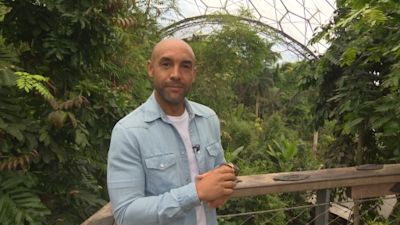Climate Changes: The rise of fast fashion and what we can do to combat it

Watch: Alex Beresford presents Climate Changes on ITV News.
Climate change is one of the biggest challenges facing us as a species.
Human activity over the past 200 years has left us standing on the brink of an environmental disaster - but it is not too late to make a change.
Weather presenter Alex Beresford has been finding out about the small, positive ways we can minimise our impact on the environment as part of a new series on ITV News.
What is fast fashion?
Fast fashion refers to clothes which are made cheaply and quickly to meet consumer demand.
The idea is to get the newest styles on the market as fast - and as cheaply - as possible, but often garments are discarded after only a few wears.
The concept plays into the idea that outfit repeating is a fashion faux pas, and this has led to the fashion industry becoming one of the world’s largest polluters.
What happened when Alex took a closer look at his wardrobe
Sarah Divall from environmental organisation Hubbub met Alex in his dressing room to take a look at how his fashion choices might be impacting the environment...
Sarah said: "The most important thing when you're looking to buy sustainably is to know what you're buying so you know what material it's made of, how to take care of it, how to make it last longer."
When looking at Alex's rain mac, she urged people to be weary of polyester.
"The thing about plastic is it's going to shed little tiny microfibres which go into our water systems, end up in the ocean and have been found in the food chain from fishes to humans," she added.
But what about Alex's 100% cotton T-shirt?
Sarah said: "I think a lot of people think if you have a natural fabric that it's better than buying a plastic fabric, but cotton - especially something like 100% cotton - takes a massive amount of water to grow and it's normally grown in countries where there isn't a massive amount of water in the first place."
Is bamboo the future?
Alex also paid a visit to the Eden Project in Cornwall to speak to Elly Voisin about bamboo - which is considered a more sustainable clothing material.
“As a textile, bamboo is hard-wearing but soft,” she said. “It has antibacterial properties, more sustainable than cotton - less fertilisers, less pesticides used to grow it.
“Bamboo hasn’t been exploited in the same way, currently.”